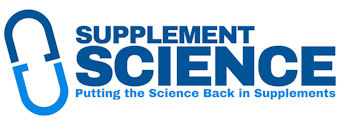What is Creatine HCL?
Creatine has been a powerful and popular workout supplement for quite some time now, and it is used by many athletes and those looking to achieve their desired fitness goals. This is because it is superior at replenishing the body’s naturally occurring creatine, increasing recovery time, and providing the user with more energy during their workout. This makes workouts more productive and gets better results.
However, when most people talk about creatine, they are typically talking about creatine monohydrate. Lately, though, Creatine HCL (creatine hydrochloride) has been hitting the spotlight. This is another type of creatine that is used to achieve the same purpose, but has been reported to have significant benefits over creatine monohydrate.
Find out more at – pubchem.ncbi.nlm.nih.gov
Creatine HCL vs. Monohydrate
There are a lot of reasons creatine HCl is gaining popularity over creatine monohydrate in the market lately, and a lot of it has to do with evidence supporting the fact that creatine HCl has better performance capabilities. Some of the advantages it offers over its standard counterpart include better absorption rates, meaning that more of the substance goes to use in the body rather than simply being discarded in urine, and greater solubility, meaning that less of the substance is required to achieve a similar effect. In fact, while creatine monohydrate typically comes with a recommended dosage of 3-5g daily, creatine HCl requires only 2g per day.
If you are trying to debate creatine HCl vs creatine monohydrate, it’s a good idea to weigh their performance capabilities. While creatine monohydrate does work excellently, that does not mean it is the best option available on the market. Creatine HCl has been shown to improve performance and the absorption rate of the supplement, with the addition of fewer side effects than what you might experience from creatine monohydrate.
Recommended Creatine HCL Dosage
The creatine HCl dosage recommended to users is significantly less than what they are required to take to achieve the same benefits while using creatine monohydrate. Typically, those users consume around 3-5g of the supplement on a daily basis in order to reap optimal benefits, while creatine HCl users need only 2g of their supplement to maximize the effects of their workout. The smaller dosage is a benefit that makes many inclined to make the switch to using creatine HCl rather than their previous methods.
Creatine HCL Side Effects
While creatine monohydrate does excellent things for your workout with minimal side effects, there are some things that users may experience while using the product that they had not intended. Some of these side effects include digestive issues and water retention. While neither of these is a big deal, it is something that can quickly become frustrating from a supplement you are taking on a daily basis. Fortunately, the creatine HCl side effects are all but nonexistent. The substance actually improves performance and absorption rates in comparison to creatine monohydrate, while eliminating any digestive issues or water retention side effects users may have been experiencing with their previous form of creatine.
The Verdict
Creatine monohydrate is a tried and true supplement that has aided athletes and body builders for ages. It does its job well with minimal side effects. However, just because it performs well does not mean that it is the best option on the market—creatine HCl has been proven to provide users with superior performance capabilities with fewer side effects.
Also check out our comparison of Creatine Monohydrate with Kre-Alkalyn (Buffered Creatine).
Or, check out a few of our favorite pre-workout supplements that contain Creatine HCL:
- Jym Pre Jym – 2g creatine hcl (review)
- Transparent Labs Stim Free Pre-Workout – 3g creatine hcl (review)
- Kaged Muscle Pre Kaged– 1.5g creatine hcl (review)





